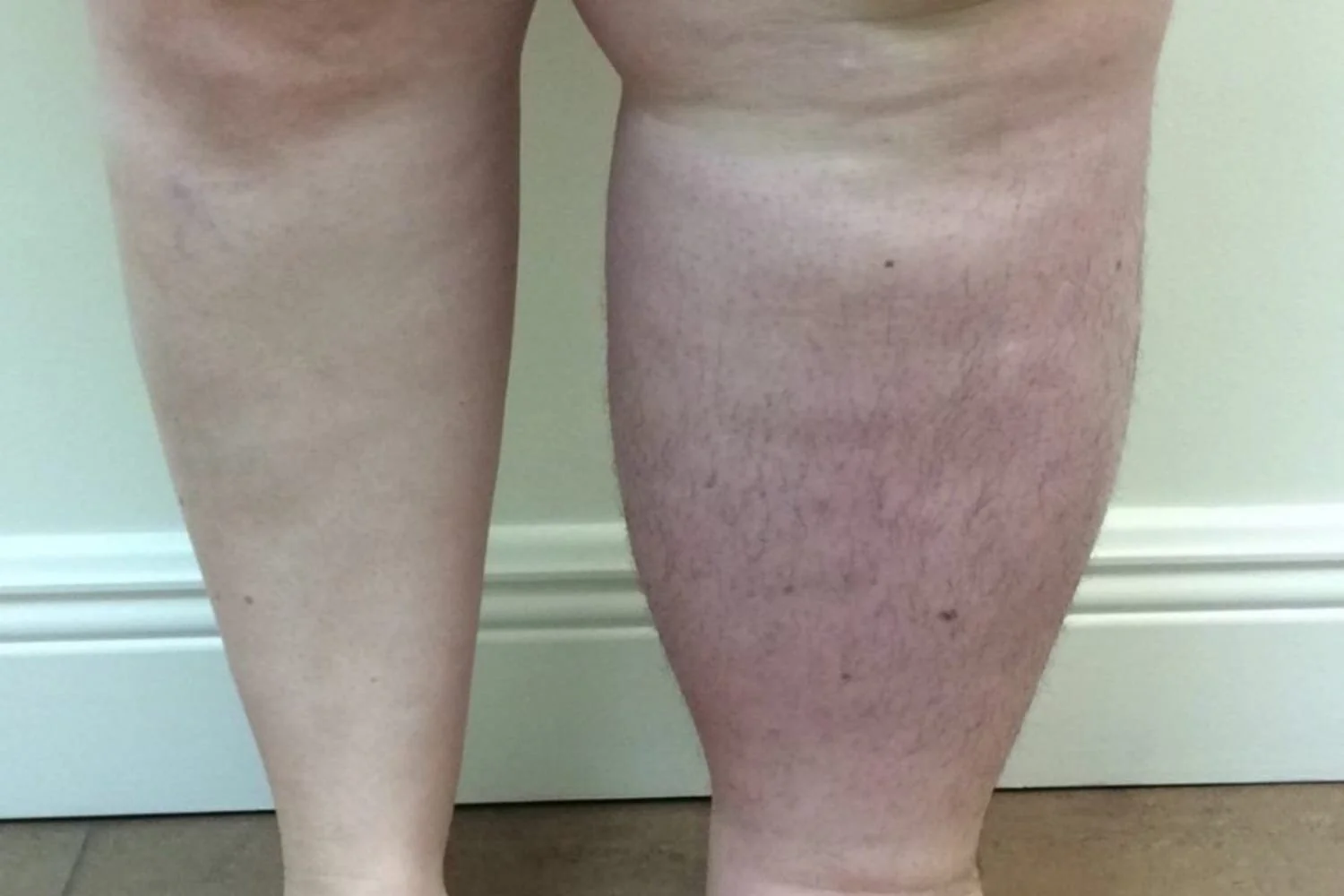Lymphedema Causes One Leg Larger
What is lymphedema?
There are many causes for swelling in the legs, but chances are if the swelling is only in one of your legs, that you are suffering from a condition called lymphedema. The symptoms of lymphedema can range from being minimal to severe, affecting the ability to perform daily activities. Swelling is the first and most common symptom. As swelling increases, this can limit the range of motion in the leg and the ability to walk normally. Over time, the skin can become firm and discolored with all the added fluid in the soft tissues, which makes the skin more prone to infections.
Lymphedema occurs when the lymph vessels are blocked. Lymph vessels are a part of the circulatory system, but instead of transporting blood, it transports a fluid that contains protein to move microorganisms to be disposed by the body. The other major portion of the lymphatic system are the lymph nodes, which are found in multiple areas of the body.
Types of lymphedema:
There are two types of lymphedema, primary and secondary.
Primary Lymphedema is caused by specific genetic disorders and is much less common than secondary.
Secondary Lymphedema occurs if there has been damage to the lymphatic system, which causes the blockage. A prior infection, radiation treatment for cancer, removal of lymph nodes during surgery, and certain cancers are common causes for secondary lymphedema.
To book a consultation click here or call (239) 300-0586.
What are the treatment options for lymphedema?
Although there are no options for complete recovery of lymphedema, there are still treatment options aimed at reducing symptoms and preventing further worsening of lymphedema.
Exercise: Performing low impact exercises at least 30 minutes per day, 5 days per week, can help to reduce swelling by having the muscles of the legs squeeze the excess fluid up and out of the legs.
Compression: Wearing compression garments such as stockings, socks, or wraps, helps to squeeze the legs to reduce swelling.
Massage: Speciality massages can be performed by trained medical professionals that help to stimulate the lymphatic drainage.
Lymphedema can be a difficult illness to manage, due to the disfiguring from the swelling and skin changes, but also the difficulty to perform normal tasks. If you have symptoms of lymphedema, please consult with your doctor, as earlier treatment may lead to better control of symptoms and prevention of worsening of the lymphedema.
Talk to a Vein Specialist
Speak with Dr. Julian Javier, a board certified interventional cardiologist and endovascular specialist in Naples, Florida. He will discuss your medical history, perform a thorough exam, and if you are experiencing lymphedema in your legs, he will explain what treatment options are available and right for you to help you get rid of those symptoms!
To book a consultation click here or call (239) 300-0586.

